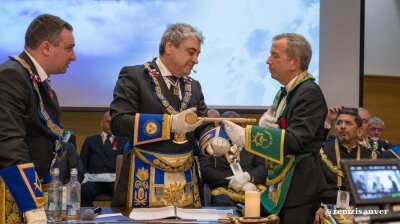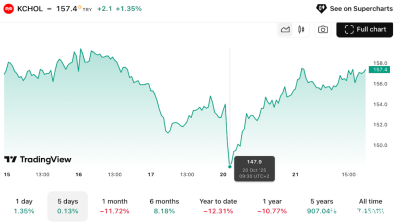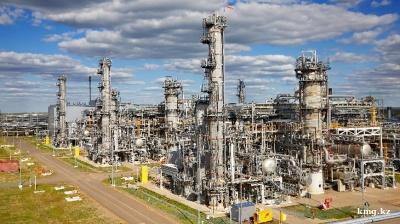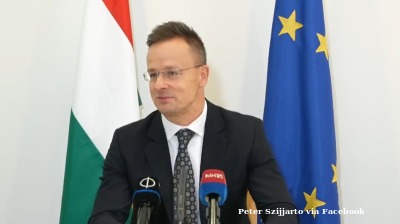Hungarian Prime Minister Viktor Orban's good relations with US President Donald Trump and Russian President Vladimir Putin contributed to Budapest being tapped as the venue of the upcoming summit on the situation in Ukraine, Kremlin spokesman Dmitry Peskov said on October 20.
Putin and Trump agreed last week to try a second meeting on Ukraine after their talks in Alaska in August did not lead to a breakthrough. The summit may happen within two weeks, most likely in Hungary, but the date is not set yet.
"We have a lot of homework to do. There must be work done between ... our and the US foreign ministry," Peskov said.
Foreign affairs spokeswoman Maria Zakharova confirmed to TASS news agency that the Russian and Hungarian foreign ministers had already had talks, and preparation was ongoing through diplomatic channels. Russian Foreign Minister Sergey Lavrov and his US counterpart Marco Rubio have also consulted by phone about the summit.
Peskov said preparations for the Budapest meeting were still at an early stage, with "many tasks remaining to be completed".
Russia hopes that the summit would bring progress towards the peaceful settlement of the conflict in Ukraine, Peskov said.
Responding to Ukrainian President Volodymyr Zelenskyy's statement that he is ready to travel to Budapest, Peskov said the details of the summit had yet to be finalised. He declined to comment on media reports that Putin and Trump had discussed potential territorial exchanges between Russia and Ukraine in a recent phone call.
Peskov underlined that talks between Moscow and Washington on the Ukraine issue were ongoing and described them as "serious work". He also reiterated that Russia's position remained unchanged regarding a possible "freezing" of the conflict along current frontlines.
He said Russia had not received official notification from the United States about any decision to withhold Tomahawk missiles from Ukraine.
EU summit
The prospect of the Russian leader's first visit to the EU since starting the war in Ukraine hung over the meeting of EU foreign ministers in Luxembourg.
At the Luxembourg meeting, EU foreign ministers faced a delicate balancing act between supporting Trump's diplomatic efforts and safeguarding the authority of the International Criminal Court (ICC), which has charged Putin with the unlawful deportation of thousands of Ukrainian children.
"It's not nice to see that a person with an arrest warrant issued by the ICC is coming to a European country," Kaja Kallas, the EU's high representative, said, adding that it remained to be seen whether the planned Budapest summit would produce any results. She noted that Russia tends to negotiate only when under pressure, and expressed hope that Trump would maintain such pressure during the talks.
Lithuanian Foreign Minister Kęstutis Budrys, speaking to reporters, said there is "no place for war criminals in Europe", referring to the arrest warrant for the Russian leader.
But ministers from many Western EU member states, including the Netherlands, Germany and France, have expressed tentative support for the meeting, which would be the first in-person summit between Trump and Putin since they met in Alaska on August 15.
Hungary's government has indicated that despite the ICC warrant, it will grant safe passage to Putin, who will face no legal risk during the visit.
Speaking to reporters on the sidelines of the meeting, Bulgarian Foreign Minister Georg Georgiev said that his country will open up airspace for the Russian leader if he decides to travel to Budapest for the summit.
Bulgarian President Rumen Radev, after meeting with his Hungarian colleague Tamas Sulyok on October 20, said it makes sense for Budapest to host the meeting because of Hungary's "peaceful approach".
"War psychosis"
Following the meeting of EU foreign and energy ministers, Hungarian Foreign Minister Peter Szijjarto said that the EU has not been "dealt a hand" in addressing today's major security challenge. Brussels is in a "state of war psychosis" and seeks to downplay the upcoming Budapest peace summit, he claimed.
"The EU does not have an interest in the success of the Budapest peace summit and a large part of European politicians will do everything they can to thwart it," he added.
"Rather than hailing another huge step towards peace, Europe's politicians continue supporting the continuation and prolongation of war," the minister said. They call for sending "even more money and weapons to Ukraine and as time goes by the figures and ideas will get even crazier".
He called it "outrageous" that the EU now wants to spend a joint loan meant to boost defence capabilities of Ukraine, which is "demanding €60bn for further weapons".
"It has also become clear that they would allocate €130bn of taxpayers' money to finance the operations of the Ukrainian state in the next two years," he added.
Diplomatic mistakes
Security policy analyst Andras Racz in a Facebook post expressed his doubts over reaching a meaningful ceasefire agreement without the presence of Zelenskyy in Budapest. For Kyiv, the Hungarian capital is not a favourable venue, given the negative memory of the 1994 Budapest Memorandum, in which Ukraine agreed to give up its nuclear arsenal in return for security guarantees.
He criticised the Orban government for excluding the EU from consultations, calling it a "serious diplomatic mistake" that weakens Hungary's position further.
The meeting primarily serves Russia's interests, helping Putin buy time, weaken the EU, support Hungarian Prime Minister Viktor Orban politically and demonstrate that he is not isolated internationally, Racz argued.
He also pointed out the timing of the summit is rather unfortunate for the host. It is likely to fall between October 23 and November 4, a national remembrance period of the 1956 revolution. A state-level welcome for Putin during this time is particularly awkward, he added. Hungary observes November 4 as a national day of mourning to honour the victims of the 1956 anti-Soviet revolution and its subsequent suppression.
Reuters writes that Szijjarto will travel to Washington on October 21, although details of his meetings and agenda remain undisclosed.
News

Grand master mason arrested as part of Turkey’s Can Holding investigation
Second wave of detentions executed.

Istanbul prosecutors summon Koc official and Akfen boss in Imamoglu investigation
Word of move sparked volatility in stocks.

Ukrainian military strike for first time disrupts operations of Western oil majors
Drone attack damage caused to Russian gas processing plant forces scaling back of output at Kazakh field partly owned by Chevron, Shell and Eni.
_Foto2_Divulgação_Foresea_(1)_1761062969.jpg)
Petrobras secures controversial Amazon drilling licence ahead of COP30 climate summit
Brazil's Petrobras has obtained authorisation to drill an exploratory well near the mouth of the Amazon River, sparking fierce criticism from conservationists just weeks before Brazil hosts UN climate talks.
_1761050969.jpg)



